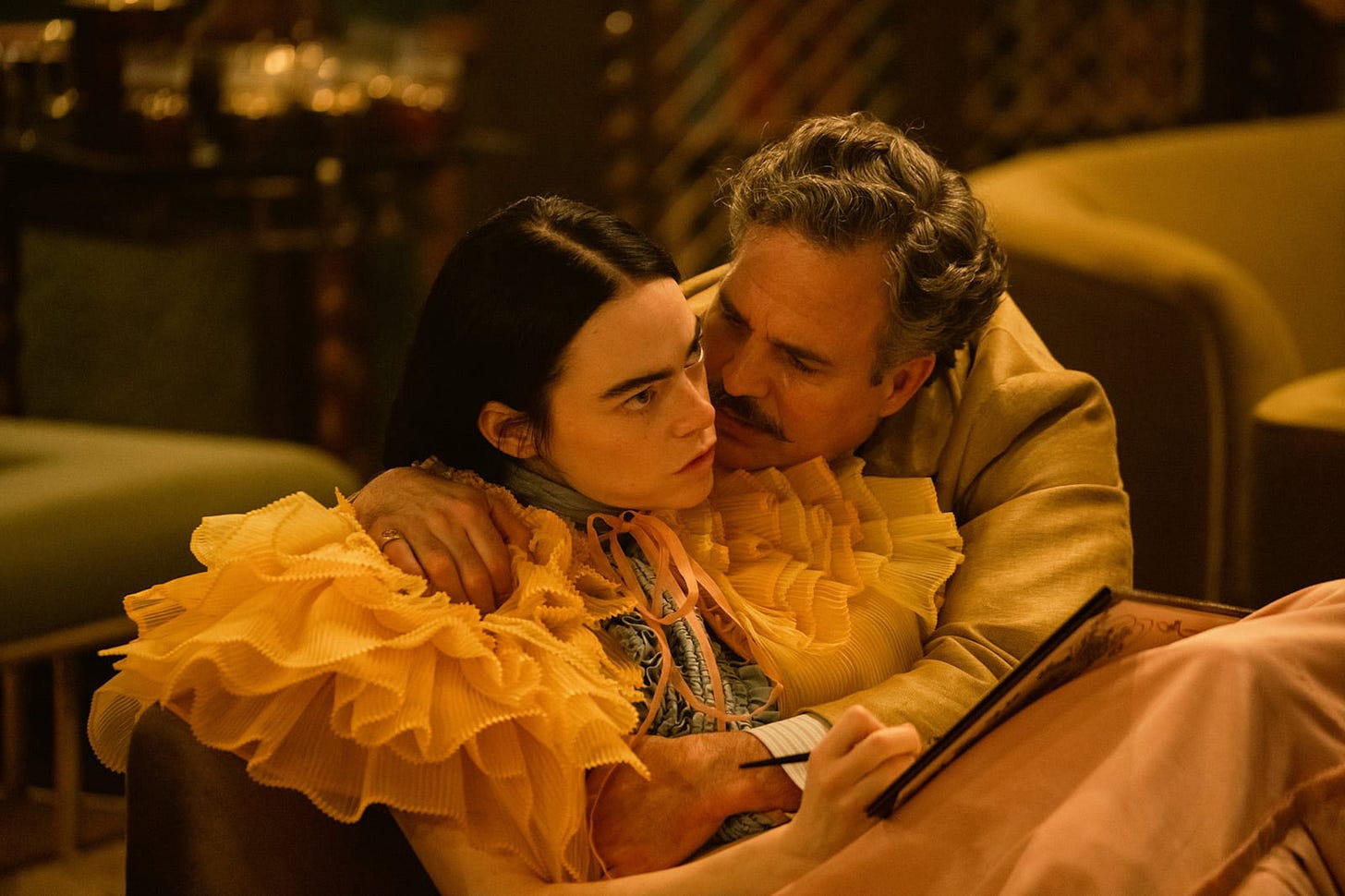"Poor Things": A Breathtaking & Broad Metaphor
Yorgos Lanthimos trades in his usual simple aesthetic for grotesqueness and grandeur
In the work of director Yorgos Lanthimos, tension is born from the corrosion of the value of the human form -- bodies are treated by their owners, or by others, as a canvas to be manipulated in the search for some physical, emotional, or social aim. His imaginations of society and history amplify the brutality of human interaction but present characters with dull emotions, contrasting pain with deadpan wit in an often bleak milieu. However, while Poor Things follows suit thematically, its protagonist forms her own self, free from her physical possessors, in an environment unfamiliar to viewers accustomed to Lanthimos’s standard visual aesthetics.
Like Lanthimos’s The Lobster and The Killing of a Sacred Deer, the world of Poor Things resembles our life on Earth but with distinct and disturbing disruptions to the laws of reality. It presents the experience of Bella Baxter (Emma Stone), a woman brought back to life who must familiarize herself with the conventions of her time and place. Born into an adult body but lacking experience of her age or the cultural confines that come with her sudden existence, Bella embarks on a journey through an eerie world, unobstructed by the social parameters of polite society to which her creator does not subscribe.
Poor Things’s uncanny visual maximalism mimics the sensation of Bella entering the world anew, familiarizing herself with experiences that expand her mind to fit the adult body it has been reborn into. Her complete liberation from the sheltered laboratory in which she was created is a vague and malleable metaphor for a general sense of self-actualization, and can be translated into an allegory of the viewers’ choosing. All of our identities (and the bodies that carry them) contain nuances which grant us luxuries and burdens in our exploration of the world, and Poor Things creates a broad parable for the universality of these experiences.
Many of Bella’s epiphanies about her own body come in the form of discoveries derived from pleasure or disgust, initially in the delight of smashing dishes or eating, but eventually the film focuses on her re-burgeoning sexuality. But as quickly as Bella discovers her sexuality, it is exploited and framed by the guise of autonomy. Her naivety towards social norms is liberating but also blinds her from the people who wish to manipulate her. She is an alien twirling through in a technicolor world similar to the one we know, but with jarring differences gone unexplained.
However, the lavish universe of Poor Things is where its one fault lies. As always, Lanthimos is intentionally and uncomfortably dull in his presentation of emotions as to emphasize their potency. In a simpler aesthetic, these emotional techniques harbor a greater presence (such as The Lobster or The Favourite), but in the opulence of Poor Things, intense visual expression sometimes is in competition with his themes. Obviously, style and substance are a part of one form, and the overt presence of one does not alleviate the involvement of the other -- which is exactly why the emotional beats of Poor Things feel empty on occasion, not cohesive with the visual tableau that they exist in.
The title of Poor Things conjures the image of children, implying a blindness to reality brought forth from innocence and bound to be disassembled as imagination is replaced with absorption of cultural norms. But Bella develops a unique optimism in her faithful curiosity, taking ownership over her own destiny because she never succumbs to a shrugging agreement of the ordinary. Her liberation comes as gratitude for her own form, never taking for granted the basic beauty of her body and the world she moves through it with.
OVERALL SCORE: 8/10
Poor Things was released on December 8, 2023 and is currently in US theaters.





I didn't leave anything. I'm not missing anything. I know where everything is.